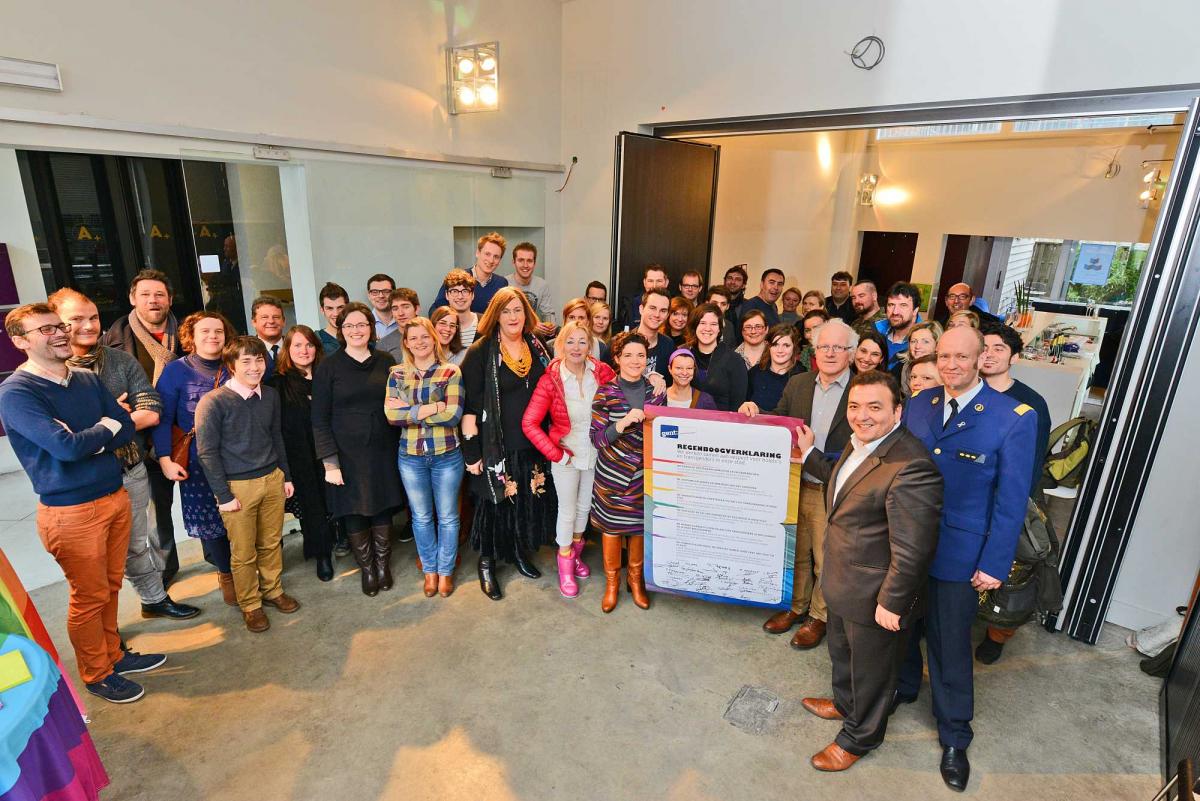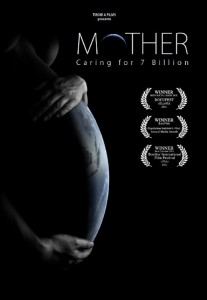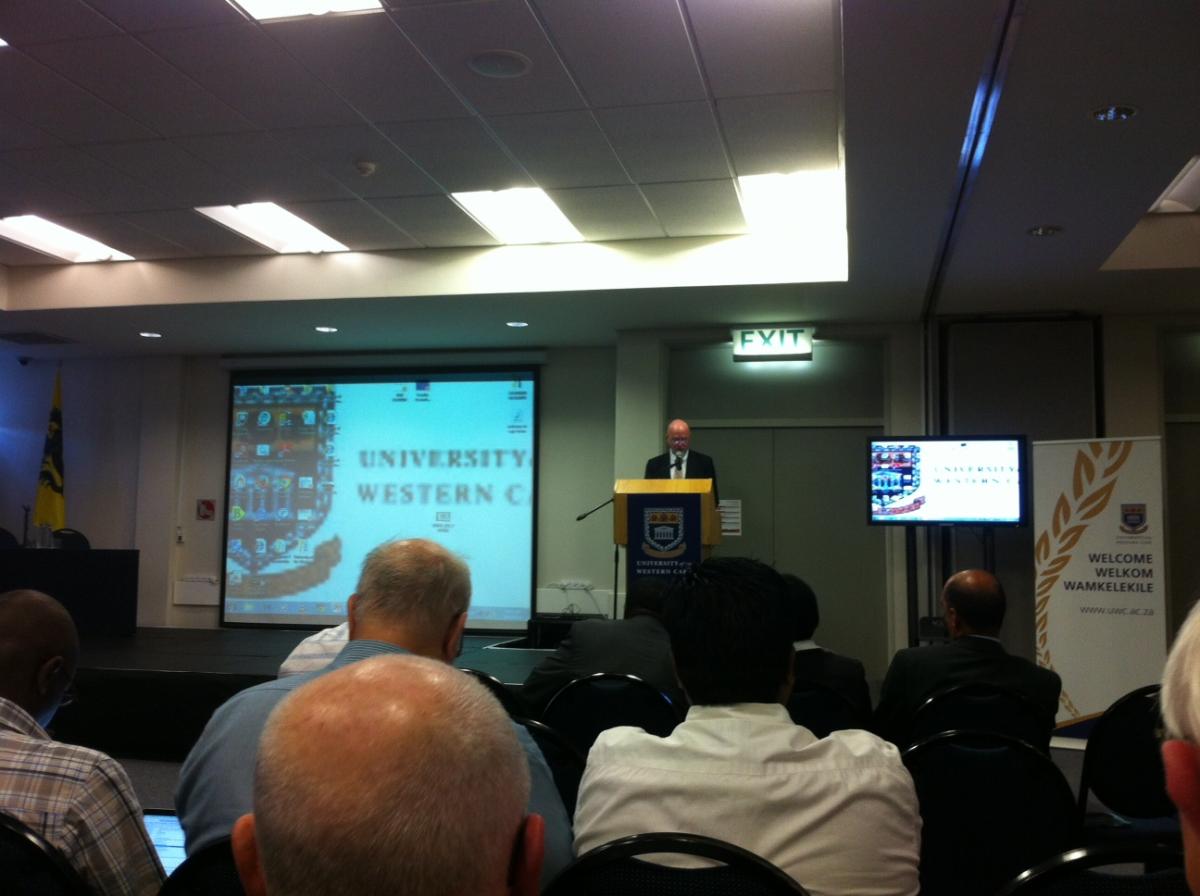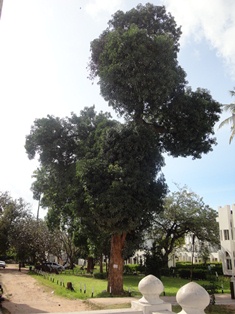 ICRH Global Newsletter ICRH Global Newsletter 25th of February, 2014 |
ICRH Belgium Internship program ICRH offers research internship opportunities to postgraduates considering a career in reproductive health research.
The program aims at exposing junior researchers to the various aspects of research with a focus on themes such as sexually transmitted infections, maternal and child health, sexual violence and family planning. The internship starts with a 5-7 months stay at ICRH/Ghent University. This will provide the intern with an environment that will encourage the development of research skills. After that, the intern will have the opportunity to experience the implementation of ?eld research in one of ICRH’s sister-organizations in Kenya (ICRH-K) or Mozambique (ICRH-M). The total duration of the program is one year. Applications can be submitted until 28 February 2014. More information and guidelines for application can be found at ICRH’s website: http://icrh.org/news/icrh-research-internship-program |
ICRH joined Twitter
Stay tuned for the latest news from ICRH and our staff, and follow @ICRHugent on Twitter |
Marleen Temmerman Fund web page is online
The ‘Marleen Temmerman Fund’ that was established within Ghent University at the end of 2013 is now fully operational.
 The Marleen Temmerman Fund will help to structure and attract the donations stream of income. For 2014, three projects were selected that will benefit from the donations that will be made through the fund: The Marleen Temmerman Fund will help to structure and attract the donations stream of income. For 2014, three projects were selected that will benefit from the donations that will be made through the fund: -Home visits for new mothers in Kenya, Mozambique, Burkina Faso and Malawi
-An Internship Programme for African researchers
-Research into Sexual Violence in Mombasa (Kenya) With the establishment of this Fund, Ghent University wants to honor professor Temmerman and to continuously support the activities of ICRH.
More information and online donations: https://universiteitsfonds.ugent.be/andereprojecten/881 |
| PROJECTS |
Scientific research community A new scientific research community will focus on network statistics for Sexually Transmitted Infections epidemiology
Epidemics of HIV and other Sexually Transmitted Infections (STIs) continue to cause an unacceptably high burden of morbidity and mortality worldwide, especially in sub-Saharan Africa. The spread of STIs, and consequent implications for prevention and treatment, strongly depend on the sexual networks in which these infections propagate. The Scientific Research Community (SRC), funded by the Flemish Scientific Research Fund (FWO), will formalise the joining of forces between groups that are internationally acclaimed primarily for their work in STI and HIV epidemiology, microbiology and public health and groups that have an international track record in developing and applying advanced statistical methodology and computer simulations for network analysis. In doing so, the SRC aims to advance science and strengthen academic capacity in network statistics and STI epidemiology. To this end, the SRC will implement a research exchange programme, facilitate the development of joint research proposals, and organise a biannual summer school on network statistics. The envisaged scientific goals of the SRC include the description of sexual networks and their features that mediate STI transmission in men who have sex with men in Flanders, and in heterosexual populations in sub-Saharan Africa, using existing datasets and established network analysis methods; the extension of network analysis methods that exist for static networks to more general methods for dynamic, time-dependent networks underlying STI transmission; and the development and application of a new theoretical framework for modelling HIV (STI) transmission in sexual networks, that unifies sociocentric and egocentric sexual network characteristics with the results of phylogenetic tree analysis. Besides ICRH, the SRC consists of CenStat at Hasselt University, the HIV/AIDS Centre at the Antwerp Institute of Tropical Medicine, the South African Centre for Epidemiological Modelling and Analysis (SACEMA) at Stellenbosch University, the Heilbrunn Department of Population and Family Health (HDPFH) at Columbia University, the Theoretical Biology Lab at McMaster University, and the Research Methodology Centre at the Human Sciences Research Council (HSRC).
More information: Wim Delva, wim.delva@ugent.be |
Validation of self-reported age in rural Malawi This new project is an ancillary study to the Age Mixing Study and aims to assess the validity of self-reported age in the Likoma Island community in Malawi.
The risk of HIV acquisition is believed to strongly depend on age as well as on the age gaps between an individual and his/her sexual partners. A new Age Mixing and HIV Study, a collaborative study between ICRH, SACEMA at Stellenbosch University, and Columbia University (USA), has been launched to investigate the effects of sexual age mixing patterns on HIV acquisition risk in a well-documented rural community on Likoma Island in Malawi. However, this study relies on self-reported age, and anecdotal evidence suggests that many study participants may provide imprecise and biased estimates of their own age. An extremely well maintained, but thus far unused, birth register offers a unique opportunity to compare self-reported with true age data. This new project is an ancillary study to the Age Mixing Study and aims to assess the validity of self-reported age in the Likoma Island community in Malawi. Specifically, the validation study will allow us to quantify the size (precision) and direction (bias) of errors in self-reported age in the study population, identify demographical and health-related predictors for the measurement errors in self-reported age data, and develop new statistical methods to correct for these errors. Such new statistical methods are instrumental in ensuring that the results of the Age Mixing and HIV Study are valid.
The project is funded by the University of Stellenbosch. For more information: Wim Delva Wim.Delva@ugent.be and Roxanne Beauclair Roxanne.Beauclair@gmail.com |
| EVENTS |
Declaration against discrimination of LGBTs  On January 17th 2014 ICRH signed the Rainbow Declaration, which was elaborated by the City of Ghent and partner organizations. On January 17th 2014 ICRH signed the Rainbow Declaration, which was elaborated by the City of Ghent and partner organizations.
The statement will serve as baseline for an integrated approach against discrimination of Lesbian, Gay and Transsexuals (LGBT´s) in the city of Ghent. The declaration consists of 6 key points and a diverse list of actions such as making sexual diversity discussable among adolescents living in Ghent, a challenge to which ICRH will actively contribute in an upcoming research project. The declaration is available at http://www.gelijkekansen.be/Portals/GelijkeKansen/met%20logo%27s%20Regenboogverklaring%20%20A3.pdf - For more information, please contact: SaraA.demeyer@Ugent.
|
ICRH Belgium participates in the City of Ghent’s Belmundo festival Within the context of the annual development cooperation festival, ICRH will organize a picture exhibition and two film evenings.
 The exhibition ‘Beyond figures – Vanuit de onderbuik’ shows the people and the human interest behind international research projects in the field of sexual and reproductive health and rights, and is a tribute to all who fight for sexual and reproductive health and rights. It will be placed in Shopping Centre Gent-Zuid from 7 to 17 March. The exhibition ‘Beyond figures – Vanuit de onderbuik’ shows the people and the human interest behind international research projects in the field of sexual and reproductive health and rights, and is a tribute to all who fight for sexual and reproductive health and rights. It will be placed in Shopping Centre Gent-Zuid from 7 to 17 March. Within the same festival, two films will be shown: ‘Mother – caring for 7 billion’, a film about population, development and sexual and reproductive rights is scheduled on 25 March, and “La source des femmes’, a drama/comedy on women in North-Africa who go on sex strike will be shown on 31 March. Both screenings start at 7:30 pm in Studio Skoop (Sint Annaplein, Gent), the entrance fee is 5 EUR.
Belmundo website: http://belmundo.org/
More information: Cindy.demuynck@ugent.be |
University of the Western Cape From 2 - 5 February, the closing event of the Interuniversity Collaboration with University of the Western Cape was held in Cape Town, South Africa
 Over the past ten years, Ghent University has closely collaborated with the University of the Western Cape in South Africa through the Interuniversity Development Cooperation programme sponsored by the Flemish Interuniversity Council (VLIR-UOS). This collaboration, entitled ‘Dynamics of Building a Better Society’, consisted of nine priority topics in different project areas (e.g. water, governance, sports). ICRH was involved in project 3, which dealt with HIV research. There are many important results of this collaboration, including the graduation of three PhD students that were jointly supervised by promotors from UG and UWC, and the establishment of on Centre for Research on HIV/AIDS within the School of Public Health at UWC. During the closing event, the recent collaboration was evaluated and basis for further joint research was laid. Over the past ten years, Ghent University has closely collaborated with the University of the Western Cape in South Africa through the Interuniversity Development Cooperation programme sponsored by the Flemish Interuniversity Council (VLIR-UOS). This collaboration, entitled ‘Dynamics of Building a Better Society’, consisted of nine priority topics in different project areas (e.g. water, governance, sports). ICRH was involved in project 3, which dealt with HIV research. There are many important results of this collaboration, including the graduation of three PhD students that were jointly supervised by promotors from UG and UWC, and the establishment of on Centre for Research on HIV/AIDS within the School of Public Health at UWC. During the closing event, the recent collaboration was evaluated and basis for further joint research was laid. |
International Day of Zero Tolerance to Female Genital Mutilation At the occasion of annual Zero Tolerance Day on 6 February, ICRH’s FGM expert prof. Els Leye attended a number of events in Geneva.
Els Leye attended the second meeting of the FGM Steering Group, convened by the World Health Organisation's Department of Reproductive Health and Research, on 6 and 7 February. On 6 February, the Steering Group equally attended a meeting in the Palais des Nations, organized by the African Union, UNFPA, UNICEF, Inter African Committee and the WHO, that discussed synergies of actions by governments, international organizations and civil societies to accelerate the achievement of zero tolerance to FGM. On 7 February, Els presented some insights on the situation of FGM in the European Union, at the Annual Symposium of the Global Alliance against FGM, held at the occasion of Zero Tolerance Day.
More information: Els.leye@ugent.be |
ICRH Kenya moves offices The headquarters of ICRH Kenya have moved to the campus of the Technical University of Mombasa, in the Kwa Kiziwe area.
 In December 2013 the main Headquarters of ICRH Kenya have left the familiar house in Tudor Four to move just a few hundred meters away, to the Kwa Kiziwe area, also in Tudor. This move marks the increasing collaboration with the Technical University of Mombasa (TUM). The new offices that accommodate the main support services (Finance, Administration, Data, ICT) and the Project Management Offices are located on the third floor of a new building on the campus of the TUM Tourism and Hospitality school, on Obote Avenue. The office also has meeting rooms and is serviced with a powerful internet link provided by Safaricom. In December 2013 the main Headquarters of ICRH Kenya have left the familiar house in Tudor Four to move just a few hundred meters away, to the Kwa Kiziwe area, also in Tudor. This move marks the increasing collaboration with the Technical University of Mombasa (TUM). The new offices that accommodate the main support services (Finance, Administration, Data, ICT) and the Project Management Offices are located on the third floor of a new building on the campus of the TUM Tourism and Hospitality school, on Obote Avenue. The office also has meeting rooms and is serviced with a powerful internet link provided by Safaricom.
More information: Irene Kibara, irene@icrhk.org |
Harvard Humanitarian Initiative ICRH Belgium signed a Letter of Understanding with the Harvard Humanitarian Initiative.
The Harvard Humanitarian Initiative (HHI) is a university-wide center involving multiple entities within the Harvard community that provide expertise in public health, medicine, social science, management, and other disciplines to promote evidence-based approaches to humanitarian assistance. The mission of the Initiative is to relieve human suffering in war and disaster by advancing the science and practice of humanitarian response worldwide. HHI fosters interdisciplinary collaboration in order to improve the effectiveness of humanitarian strategies for relief, protection and prevention; instill human rights principles and practices in these strategies; and educate and train the next generation of humanitarian leaders. The Letter of Understanding that was signed between HHI and ICRH expresses the intention of both institutions to explore areas of common interest, complementary competencies, resources, and networks in the area of gender-based violence research and to provide mutual benefit through applied research and collaboration.
More information: Olivier.degomme@ugent.be |
 Within the context of the annual ‘week of the spring fever’, ICRH Belgium distributed free condoms in the student cafeteria of Ghent University at the University Hospital campus. Within the context of the annual ‘week of the spring fever’, ICRH Belgium distributed free condoms in the student cafeteria of Ghent University at the University Hospital campus.
By organizing the annual ‘week of the spring fever’, Sensoa - the Flemish centre of expertise for sexual health - aims to draw attention of young people to contraception. The key message is: ‘There are different types of contraception. Inform yourself and then choose together with your doctor a method that suits you’. Sensoa and its partner organization have set up numerous sensitization and information activities in the week of 10-14 February. ICRH Belgium contributed by distributing condoms and leaflets in the students cafeteria of the University Hospital campus in Ghent.
More information: cindy.demuynck@ugent.be |
| ICRH - PEOPLE |
Roxanne Beauclair  Roxanne Beauclair will be joining ICRH in March 2014 as a researcher and new PhD student in the Faculty of Medicine and Health Sciences. Roxanne Beauclair will be joining ICRH in March 2014 as a researcher and new PhD student in the Faculty of Medicine and Health Sciences.
Roxanne will be supervised by Prof Dr Wim Delva and together they will be working on the project entitled, “HIV prevention among young women in sub-Saharan Africa: statistical and epidemiological modelling to unite biological, sociological, behavioural and epidemiological science”. In this project, funded by the Flemish Scientific Research Fund (FWO), Roxanne will investigate how the age-mixing patterns in populations of Malawi and South Africa influence the spread of HIV and how behavioural interventions that are aimed at altering these age-mixing patterns, may curb the spread in these settings. Roxanne has an MA in Social Anthropology and an MPH in Epidemiology from the University of Cape Town. She currently is also affiliated with the South African Centre for Epidemiological Modelling & Analysis (SACEMA) and has been working on projects related to HIV social epidemiology and sexual networks.
More information: roxanne.beauclair@gmail.com
|
Dr. Yan CHE  In February-March 2014, Dr. Yan Che is staying at ICRH Belgian to work to prepare the intervention stage of the INPAC project. In February-March 2014, Dr. Yan Che is staying at ICRH Belgian to work to prepare the intervention stage of the INPAC project.
Dr. Yan CHE received his MD and MPH at Fudan University in China and PhD in Epidemiology and Public Health at London School of Hygiene and Tropical Medicine in the UK, where he also did post-doctoral training. He currently works as a senior Epidemiologist at the Shanghai Institute of Planned Parenthood Research. During the past 18 years, he has been involved in over 40 research projects focusing on family planning, fertility/infertility/ abortion, birth defects prevention, infant and maternal health improvement, and family planning policy. He received research funding from a variety of sources, including the Ministry of Science and Technology of China, WHO, DFID (UK), the Wellcome Trust (UK), the Asian Scholarship Foundation (Thailand), FHI 360 (US), the Shanghai Nature Science Foundation, and the Shanghai Population and Family Planning Commission. He is a member of the editorial boards of the journals Emerging Themes in Epidemiology, Journal of Bio-Education, and Shanghai Family Development. He provides consultancy services for the China Food and Drug Administration and for the China Administration Centre for Contraceptive Drugs and Devices. He is now the PI of three projects: a clinical trial to evaluate the effectiveness of Sino-implant and parmacokinetics over five years of use, a prospective cohort and nested case-control study to investigate incidence and genetic risk factors of VTE among prenatal and postpartum women, and an intervention study to prevent birth defects among newly married couples in Shanghai. He is also involved in the EU funded project titled ‘integrating postabortion family planning services into China’s existing abortion services in hospital settings’ (INPAC), which is coordinated by ICRH Belgium. During his stay at Ghent University, he will contribute to the development of the intervention implementation guidelines and the questionnaire for the INPAC project.
More information: Yan Che cheyan2004@163.com
|
| PUBLICATIONS |
Sexual and reproductive health of migrants: Does the EU care? A reflection on the results of a comprehensive literature review on migrants’ sexual and reproductive health in the EU.
The European Union (EU) refers to health as a human right in many internal and external communications, policies and agreements, defending its universality. In parallel, specific health needs of migrants originating from outside the EU have been acknowledged. Yet, their right to health and in particular sexual and reproductive health (SRH) is currently not ensured throughout the EU. This paper reflects on the results of a comprehensive literature review on migrants’ SRH in the EU applying the Critical Interpretive Synthesis review method. The authors highlight the discrepancy between a proclaimed rights-based approach to health and actual obstacles to migrants’ attainment of good SRH. Uncertainties on entitlements of diverse migrant groups are fuelled by unclear legal provisions, creating significant barriers to access health systems in general and SRH services in particular. Furthermore, the rare strategies addressing migrants’ health fail to address sexual health and are generally limited to perinatal care and HIV screening. Thus, future European public health policy-making should not only strongly encourage its Member States to ensure equal access to health care for migrants as for EU citizens, but also promote migrants’ SRH effectively through a holistic and inclusive approach in SRH policies, prevention and care.
Ines Keygnaert, Aurore Guieu, Gorik Ooms, Nicole Vettenburg, Marleen Temmerman, Kristien Roelens. Sexual and reproductive health of migrants: Does the EU care? Health Policy. 2014 Feb;114(2-3):215-25. doi: 10.1016/j.healthpol.2013.10.007. Epub 2013 Nov 6. PMID:24268324. |
Intimate Partner Violence and Pregnancy: A Systematic Review of Interventions Intimate partner violence (IPV) around the time of pregnancy is a widespread global health problem with many negative consequences.
Nevertheless, a lot remains unclear about which interventions are effective and might be adopted in the perinatal care context. The objective of this review was to provide a clear overview of the existing evidence on effectiveness of interventions for IPV around the time of pregnancy. Following databases PubMed, Web of Science, CINAHL and the Cochrane Library were systematically searched and expanded by hand search. The search was limited to English peer-reviewed randomized controlled trials published from 2000 to 2013. This review includes all types of interventions aiming to reduce IPV around the time of pregnancy as a primary outcome, and as secondary outcomes to enhance physical and/or mental health, quality of life, safety behavior, help seeking behavior, and/or social support. The authors found few randomized controlled trials evaluating interventions for IPV around the time of pregnancy. Moreover, the nine studies identified did not produce strong evidence that certain interventions are effective. Nonetheless, home visitation programs and some multifaceted counseling interventions did produce promising results. Five studies reported a statistically significant decrease in physical, sexual and/or psychological partner violence (odds ratios from 0.47 to 0.92). Limited evidence was found for improved mental health, less postnatal depression, improved quality of life, fewer subsequent miscarriages, and less low birth weight/prematurity. None of the studies reported any evidence of a negative or harmful effect of the interventions. The authors conclude that strong evidence of effective interventions for IPV during the perinatal period is lacking, but some interventions show promising results. Additional large-scale, high-quality research is essential to provide further evidence about the effect of certain interventions and clarify which interventions should be adopted in the perinatal care context.
Van Parys A-S, Verhamme A, Temmerman M, Verstraelen H (2014) Intimate Partner Violence and Pregnancy: A Systematic Review of Interventions. PLoS ONE 9(1): e85084. doi:10.1371/journal.pone.0085084. Published January 17, 2014 |
Gender norms and sexual behavior Factorial validation of the Attitudes toward Women Scale for Adolescents (AWSA) in assessing sexual behaviour patterns in Bolivian and Ecuadorian adolescents.
Background: Adolescents’ health is greatly influenced by social determinants, including gender norms. Although research has shown that there is an association between gender attitudes and adolescents’ sexual behaviour, few studies have assessed this relationship carefully. The Attitudes toward Women Scale for Adolescents (AWSA) is widely used to assess gender attitudes among adolescents; however, it has not been applied in Latin America. The objectives of this study were to apply AWSA in Latin America for the first time, to perform a factorial validation of this scale and to assess the relationship of gender attitudes and sexual behaviour in Bolivian and Ecuadorian adolescents. This cross-sectional study was carried out in 2011 among 14–18 year olds in 20 high schools in Cochabamba (Bolivia) and six in Cuenca (Ecuador) as a part of a larger project. Schools were purposively selected. A Spanish version of the 12-item AWSA was employed for this study. The assessed aspects of adolescent sexual behaviour were: reported sexual intercourse, reported positive experience during last sexual intercourse and reported current use of contraception. The psychometric properties of AWSA were investigated, and both explanatory and confirmatory factorial analyses were performed. The number of questionnaires included in the analysis was 3,518 in Bolivia and 2,401 in Ecuador. A factorial analysis of AWSA resulted in three factors: power dimension (PD), equality dimension (ED) and behavioural dimension (BD). ED showed the highest correlates with adolescent sexual behaviour. Higher scores of this dimension were associated with a more positive experience of sexual relationships, a higher current use of modern contraception and greater sexual activity among girls. The authors conclude that this study revealed a three-factorial structure of AWSA and demonstrated that by employing factors, the sensitivity of AWSA increases as compared to using the scale as a whole to assess sexual behaviour. This could have important implications for future research on gender and the sexual experiences of adolescents.
Lina Jaruseviciene, Sara De Meyer, Peter Decat, Apolinaras Zaborskis, Olivier Degomme, Mildrett Rojas, Salazar Arnold Hagens, Nancy Auquilla, Bernardo Vega, Anna C. Gorter, Miguel Orozco, Jeffrey V. Lazarus. Factorial validation of the Attitudes toward Women Scale for Adolescents (AWSA) in assessing sexual behaviour patterns in Bolivian and Ecuadorian adolescents. Glob Health Action 2014, 7: 23126
http://www.globalhealthaction.net/index.php/gha/article/view/23126 |
Infant feeding and HIV-infected women A study about postpartum weight change among HIV-infected mothers by antiretroviral prophylaxis and infant feeding modality .
This study aimed to assess the relationship between infant feeding, triple-antiretroviral prophylaxis and weight from 2 weeks (baseline) to 6 months postpartum among HIV-infected mothers in a mother-to-child transmission (MTCT) of HIV-prevention trial in five sub-Saharan African sites. HIV-infected pregnant women with CD4þ cell counts of 200–500 cells/ml were counselled to choose breastfeeding to 6 months or replacement feeding from delivery. They were randomized to receive perinatal zidovudine and single-dose nevirapine or triple-antiretroviral MTCT prophylaxis until breastfeeding cessation. Mixed-effect linear models were used to compare maternal weight trajectories over time by infant feeding mode. Antiretroviral prophylaxis and BMI at baseline were examined as potential effect modifiers. Among 797 mothers, 620 (78%) initiated breastfeeding. Wasting (BMI <18.5) was rare at baseline (2%), whereas overweight/obesity (BMI_25) was common (40%). In the model including all women, breastfeeding was not associated with weight loss up to 6 months, irrespective of baseline BMI and antiretroviral prophylaxis. Triple-antiretroviral prophylaxis was associated with weight gain among replacement-feeding mothers with baseline BMI at least 25 (þ0.54 kg/month; P<0.0001). In the model including breastfeeding mothers only, triple-antiretroviral prophylaxis was associated with weight gain among mothers with baseline BMI at least 25 who ceased breastfeeding before 3 months postpartum (þ0.33 kg/month; P¼0.03). Conclusion: The results suggest that breastfeeding up to 6 months postpartum is not detrimental for postpartum weight among well nourished HIV-infected mothers at intermediate-disease stage. In the absence of breastfeeding or after weaning, tripleantiretroviral prophylaxis is associated with weight gain among women with high BMI, even after cessation of prophylaxis.
Cecile Cames, Amandine Cournil, Isabelle de Vincenzi, Philippe Gaillard, Nicolas Meda, Stanley Luchters, Ruth Nduati, Kevindra Naidu, Marie-Louise Newell, Jennifer S. Read, Kirsten Borka, for the Kesho Bora Study Group. Postpartum weight change among HIV-infected mothers by antiretroviral prophylaxis and infant feeding modality in the Kesho Bora trial. AIDS 2014, 28:85–94. |
| |
| |
| |
 ICRH Global Newsletter
ICRH Global Newsletter 


 On January 17th 2014 ICRH signed the Rainbow Declaration, which was elaborated by the City of Ghent and partner organizations.
On January 17th 2014 ICRH signed the Rainbow Declaration, which was elaborated by the City of Ghent and partner organizations.  The exhibition ‘Beyond figures – Vanuit de onderbuik’ shows the people and the human interest behind international research projects in the field of sexual and reproductive health and rights, and is a tribute to all who fight for sexual and reproductive health and rights. It will be placed in Shopping Centre Gent-Zuid from 7 to 17 March.
The exhibition ‘Beyond figures – Vanuit de onderbuik’ shows the people and the human interest behind international research projects in the field of sexual and reproductive health and rights, and is a tribute to all who fight for sexual and reproductive health and rights. It will be placed in Shopping Centre Gent-Zuid from 7 to 17 March.
